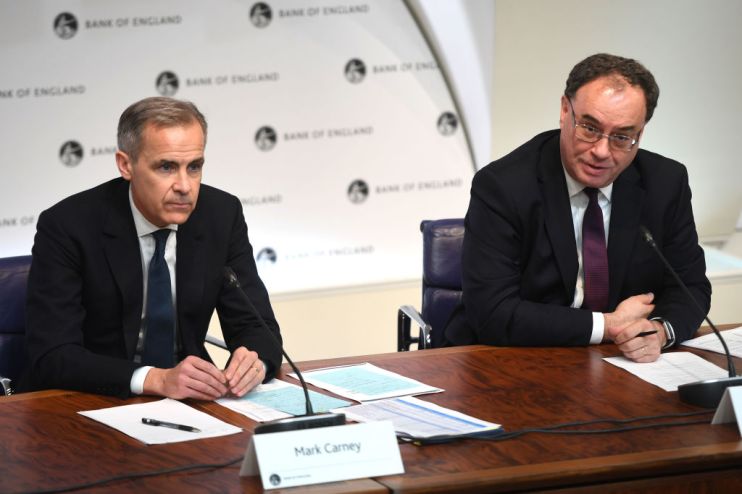Rate cut reaction: Businesses welcome Bank of England emergency stimulus

UK businesses, banks and academics have welcomed the Bank of England’s emergency interest rate cut and raft of other measures to support the economy as it slows amid the coronavirus outbreak.
The Bank slashed rates to 0.25 per cent – the joint-lowest on record – at an emergency meeting this morning. It also offered banks cheap funding and loosened requirements on lenders to hold capital buffers.
Small businesses ‘thankful’ for rate cut
The Federation of Small Businesses (FSB) said it was “encouraging” to see the BoE taking action. Small firms have been worried about the impact of coronavirus on cashflow as demand drops as people self-quarantine.
“The Bank of England has thankfully wasted no time in taking action to try and stabilise the UK economy in the wake of the Coronavirus outbreak,” said FSB chairman Mike Cherry.
Cherry said the £100bn cash injection into banks earmarked for small businesses would “throw a lifeline to firms suffering from cashflow issues”.
Ivan Petrella, associate professor at Warwick Business School, said it was a “timely move by the Bank of England”.
He said BoE governor Mark Carney’s comments after the rates decision that the Bank and the government would work “in concert” were particularly welcome. Chancellor Rishi Sunak will give a Budget today which is expected to contain more short-term support for businesses and households.
Petrella said: “The timing, ahead of the measures expected in the 2020 Budget, gives a clear indication that UK policymakers are ready to make a coordinated effort to support the economy.”
However, many commentators said that other measures announced by the Bank would likely provide more support to the economy.
CBI: Stimulus will ease pressure on firms
Dean Turner, economist at UBS Wealth Management, said that “one might question how effective a rate cut is in the short-term”.
“The other measures around lending to SMEs [small and medium-sized businesses] are arguably more important at this point,” he said.
The Bank announced a “term funding scheme” that would provide cheap money to banks for four years. It said extra would be available for those that increase lending, and said the scheme “could provide in excess of £100 billion in term funding”.
The CBI’s chief economist Rain Newton Smith said: “Measures to help the flow of credit and support businesses potentially facing cash flow issues could make a real difference in the weeks ahead.”
Moves boost bank lending power
As part of the package, the Bank will cut the amount of capital it requires banks to hold, lowering the so-called counter-cyclical capital buffer from one per cent to zero.
“By requiring banks to hold less capital, it frees up an extra £190bn for them to lend to businesses,” said Paul Dales, chief UK economist at consultancy Capital Economics.
“To put that into context, that’s 13 times the banks’ net lending to businesses in 2019.”
However, there are doubts that Britain’s banks will lend out the money to customers. The Prudential Regulation Authority (PRA) warned lenders not to increase dividends or bonuses as a result of the BoE’s actions.
PwC chief economist John Hawksworth said monetary policy “can only achieve so much in the face of a major supply shock like Covid-19”.
He said: “All eyes will now be on the package of emergency fiscal policy measures that the chancellor is expected to announce later today in his Budget speech.”